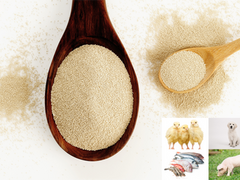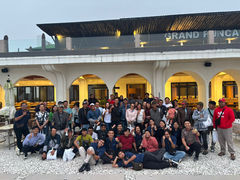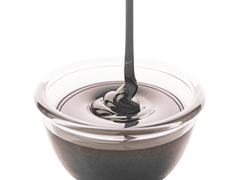Yeast fraction supplementation on post-weaning diarrhea and pcv2 antibody responses of nursery pigs
- Kevin Ming
- Aug 30, 2021
- 3 min read
Updated: Feb 10, 2023
Uniquely selected yeast strains & advanced technology make X-MOS one of the purest forms of Beta-Glucans and Mannan oligosaccharides. Commercial study in Malaysia of X-MOS in young pigs showed an improvement in gut health and a more prolonged immune response after PCV2 vaccination.
P. Sungnak1, H.H. Lee2, C.X. Zhu3, C.Y. Sun3
1. InterCons 3P Co., Ltd, Nonthaburi, Thailand
2. Algebra Bio (Australia) Ltd, 12 Sunburst Ave, Balwyn North Victoria 3104 Australia
3. Shandong Bio Sunkeen Co., Ltd, No.6789 Xingfuhe Road, Zoucheng Industrial Park, Shandong Province, China
Corresponding Author: Hock Hee Lee. Email: hhlee@algebra-bio.com

Introduction Recently, a combination of Mannan oligosaccharides (MOS) and Beta-Glucans (BG) appears to be an alternative choice for minimizing the use of antibiotics in feed. MOS can block bacterial attachment to enterocytes via compete mannose-receptors on epithelial cells with some strains of pathogens such as E. coli and Salmonella spp. (Lindquist et al., 1987). BG has demonstrated effects on activating macrophages, beneficial to antibacterial and antiviral activities, results increases the nonspecific immunity (Stokes et al., 1987). X-MOS, from Algebra Bio Ltd is a high purity yeast fraction product with concentrated levels of BG and MOS. The objective of this study was to evaluate the effects of the X-MOS 2 kg/ton of feed supplementation in pre-starter diet on post-weaning diarrhoea and PCV2 antibody response of nursery pigs.
Material and methods Total 30 weaned pigs, 3 crossed bred, 26 days old were assessed for 41 days in a commercial farrow-finisher pig producing farm. The pigs were randomly allocated into 2 groups with 15 replicates per group, 1 pig per replicate, with equal male and female in each group. The experimental pens were in closed house, evaporative cooling system. Feed and water were provided ad lib. Pre-starter diet was formulated and served as the experimental diets. Control group (T0) was fed basal diet. Treatment group (T1) was fed the same diet supplemented with the X-MOS. Faecal Score (FS) were evaluated at the beginning every morning until the end of experiment. All experimental pigs were vaccinated PCV2 vaccine at 21 days old. Blood samples were collected at weaning day and the end of experiment to determine the antibody responses for PCV2. FS and PCV2 antibody titers were analyzed by t-test technique. The percentage of positive and negative titer of PCV2 was analyzed by Chi-square test. A significant difference was considered when P<0.05.
Results At 1st and 2nd week of experiment, average FS in control and treatment group was 3.29 vs 3.00 (p=0.6653) and 2.71 vs 2.57 (p=0.6903) respectively, with no significant different. However, pigs in the treatment group had lower FS than control group. The PCV2 antibody responses are shown in table 1. At the beginning, pigs in control and treatment group had similar PCV2 antibody titer. The % of positive PCV2 titer in control and treatment group was 93% and 86%, p=0.5010 respectively. At the end of experiment, pigs in control and treatment had also similar PCV2 antibody titer. The % of positive PCV2 titer in control and treatment group was 60% and 80%, p=0.2320 respectively.

Conclusion and implications Supplementation with X-MOS at 2 kg/ton of feed had positive effects on faecal score, demonstrated lower faecal score 8.8% at 1st week and 5.2% at 2nd week after weaning. Immune response also improved, indicated by % positive PCV2 antibody in treatment group dropped by 6%. While pigs in control group had dropped 33% from the beginning of experiment. The pigs supplemented with the X-MOS have a prolonged and longer protective immunity against PCV2 symptoms for their life.
References
Lindquist BL, Lebenthal E, Lee PC, Stinson MW and Merrick JM. Adherence of Salmonella typhimurium to small-intestinal enterocytes of the rat. Infect Immun. 1987;55(12):3044–3050.
Stokes CR, Miller BG, Bailey M, Wilson AD and Bourne FJ. The immune response to dietary antigens and its influence on disease susceptibility in farm animals. Vet. Immunology & Immunopathology. 1987; 17:413-423.










































Comments